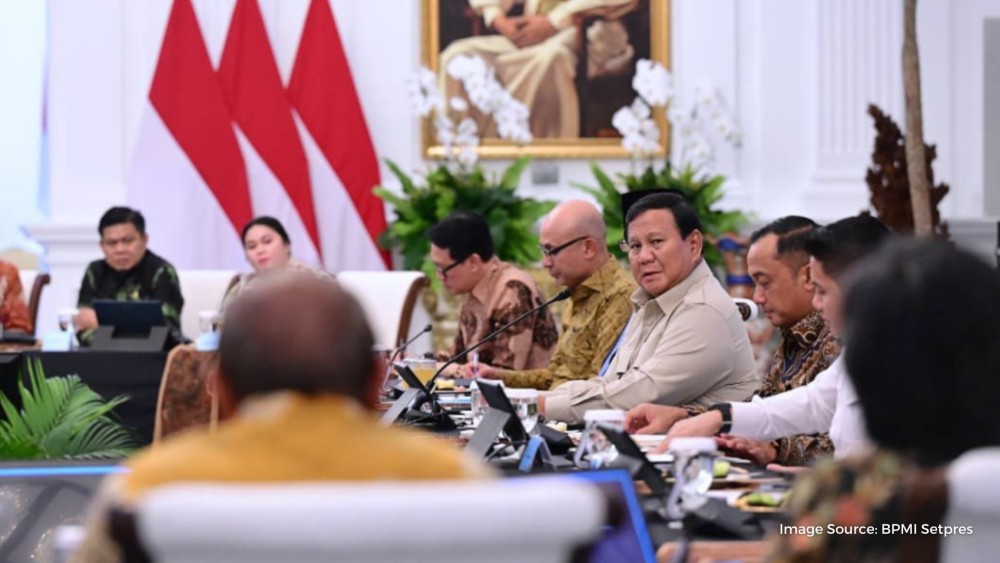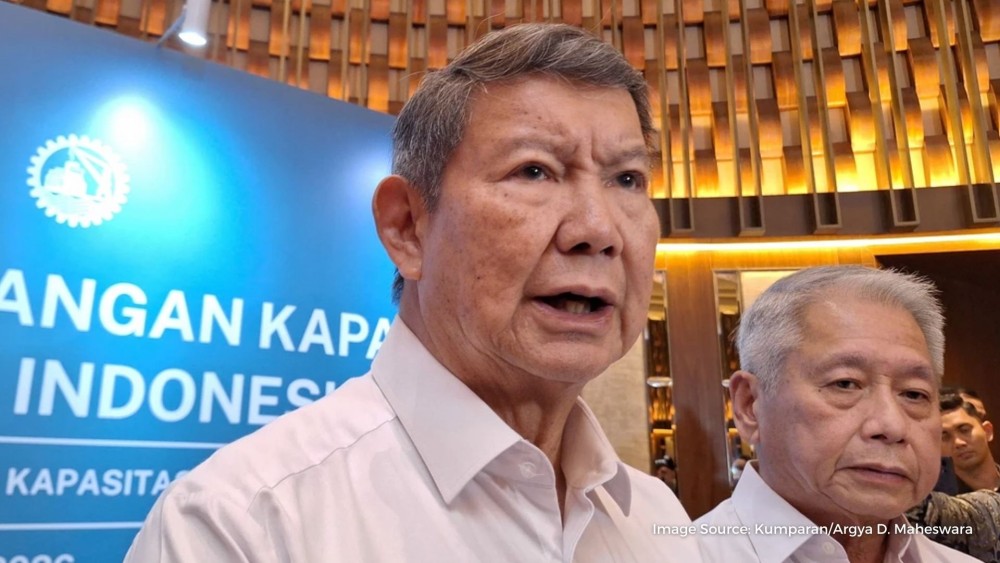This Week’s Headlines (Aug. 10 – Aug. 16, 2024)
16 Aug 2024

Indonesia holds first cabinet meeting in planned new capital, Nusantara
Indonesian President Joko Widodo held his first cabinet meeting in his planned new capital, Nusantara, on Monday, as the outgoing leader seeks to reassure investors his $32 billion mega-project remains on track before he steps down this October.
Years after announcing his flagship infrastructure project, intended to ease the burden on congested, sinking and overpopulated Jakarta, Nusantara has faced multiple problems, including construction delays and a lack of foreign investment.
Preparing to leave office after serving the maximum two terms, Jokowi, as the president is known, told his ministers the new capital marked a historic new chapter for the country.
"The new capital Nusantara is a canvas on which we can carve out the future. Not every country has the opportunity or ability to construct a new capital from zero," he said, speaking from the eagle-shaped new state palace.
Nusantara is being built in a forested pocket on the island of Borneo, about 1,200 km (745 miles) from the current capital, Jakarta.
The location was strategic and would promote equal development across Southeast Asia's largest economy, Jokowi said, adding that the country's population and economic activity has long been dominated by the island of Java which accounts for 58% of GDP.
Almost all 34 cabinet ministers attended Monday's meeting, including defence minister and president-elect, Prabowo Subianto, who will be inaugurated on Oct. 20.
Live streamed from a room with metallic-blue walls, the president and cabinet ministers discussed the development of Nusantara, and the transition to the next administration.
Jokowi said he is confident foreign investment will be forthcoming, and that incoming president Prabowo would remain committed to the project.
"At the very least, I'll continue it, I'll complete it if it's possible," Prabowo told reporters before the meeting.
"Although we are aware that new capital construction is not a quick job, it's a long job, and a difficult one."
Source: Reuters
Trade surplus hits 14-month low as imports surge, but that might be good news
The trade deficit with China hit US$1.7 billion in July, more than twice as high as a year earlier, driven by imports of mechanical equipment, electrical goods and vehicles.
Indonesia’s trade balance has remained positive for 51 consecutive months, but the gap between the country’s exports and imports plunged to just US$0.47 billion in July.
That marks the lowest surplus since May last year and a massive drop from the $2.4 billion surplus logged in June, according to Statistics Indonesia’s (BPS) latest monthly trade report, published on Thursday.
The shrinking surplus came as a surprise to some, including Moody’s Analytics, which had instead forecast an increase to $2.5 billion, while the consensus of economists polled by Bloomberg showed a median forecast of $2.47 billion.
The BPS data showed that Indonesian exports grew by 6.46 percent year-on-year (yoy) to $22.21 billion in July, but imports rose at a faster pace of 11.07 percent yoy to $21.74 billion.
The jump was mainly driven by an influx of plastics and articles thereof, as defined under Harmonized System (HS) code 39, machinery and mechanical appliances (HS code 84) and electrical machinery and equipment (HS code 85), which increased by 20.87 percent, 8.66 percent and 2.13 percent, respectively, from the same month last year.
Imports of intermediate goods and capital goods recorded annual growth of 15.17 percent and 2.04 percent, while incoming shipments of consumption goods dropped 0.81 percent yoy.
“The annual increase in oil and gas imports was caused by a surge in volumes and average aggregate prices. One category that saw a significant jump is [petroleum products], which increased by 30 percent. Meanwhile, the surge in non-oil and gas products was driven by 31.74 percent hike in volume,” said interim BPS head Amalia Adininggar Widyasanti.
Meanwhile, export growth was driven by precious metals, copper ores and cocoa. Those commodities compensated for a continued decline in shipments of the country’s main export products coal, steel and crude palm oil (CPO), which fell by 2.49 percent, 8.07 percent and 39.22 percent, respectively.
Indonesia’s deficit in bilateral trade with China, its main trading partner, more than doubled from $0.64 billion in July 2023 to $1.7 billion last month, as Indonesian exports to China dropped 1.91 percent yoy while imports surged 17.61 percent.
“The deficit was mainly [caused] by the trade balance in mechanical machinery, electrical machinery and vehicles, which accounted for $1.52 billion, $1.23 billion and $0.34 billion deficit, respectively,” Amalia said.
According to data from the Association of Indonesian Automotive Manufacturers (Gaikindo), car imports from China jumped from 937 vehicles in 2023 to 7,128 in the first seven months of this year alone. More than 90 percent of the imported cars were electric vehicles (EVs) from Chinese manufacturer BYD.
Fikri C. Permana, an economist at KB Valbury Sekuritas, interpreted the rise in imports as a positive development, given that most of the growth came from capital goods and raw materials, rather than from consumer goods. Imports of those types of products typically pointed to greater exports in the future.
“Despite suffering from a low trade surplus, export volumes could increase in the next two or three months when those raw materials and capital goods are transformed into exported commodities,” Fikri told The Jakarta Post on Thursday.
As for the widening trade deficit with China, Fikri argued it was also related to the surge in raw materials and capital goods imports. According to him, with geopolitical developments resulting in a rise of investment from China, it is only logical for imports from that country to increase as well.
However, he pointed out that Indonesia’s export growth was still underwhelming. An ongoing decline in shipments of major export commodities like coal, steel and CPO indicated pressure on those key commodities from certain markets, which needed to be addressed.
He noted that, despite the rupiah’s low exchange value, “our export products are less competitive in the global market. This is also a challenge we need to address,” Fikri stated.
Bank Danamon economist Hosianna Evalita Situmorang agreed that the export growth was disappointing. However, the fact that import growth was driven by oil and gas, plastics, mechanical equipment and electrical goods signaled a recovery in manufacturing activity, she added.
The improvement may affect the country’s manufacturing purchasing managers’ index (PMI), which slipped into contraction territory in July for the first time in more than two years.
“A widening current account deficit is anticipated due to decreasing global demand and increased fragmentation in Chinese manufacturing. Bank Indonesia is likely to maintain the benchmark interest rate at 6.25 percent in the upcoming August 2024 meeting,” Hosianna said in a statement on Thursday.
Source: The Jakarta Post
Luhut reveals plan to close Suralaya PLTU to lower air pollution
Coordinating Minister for Maritime Affairs and Investment Luhut Binsar Pandjaitan announced a plan to shut down the Suralaya Steam Power Plant (PLTU) in Cilegon, Banten, to reduce air pollution in Jakarta.
"This is part of our exercise or a study as an effort to reduce air pollution in Jakarta," the minister stated after attending the Supply Chain & National Capacity Summit 2024 at the Jakarta Convention Center (JCC) on Wednesday.
Luhut revealed that the government would conduct further study regarding this issue to reduce pollution in Jakarta, especially since the coal-fired Suralaya power plant has been operating for more than four decades.
"Later, we will have a meeting to discuss this issue. The Suralaya PLTU has been operating for over 40 years," he remarked.
He noted that Jakarta's air quality index is around 170-200, which is causing a disease in the community. Luhut said this phenomenon has become a burden for the community.
"If we can close the Suralaya PLTU, the air quality index in Jakarta can drop below 100," he stated.
On the other hand, he affirmed that the government is also encouraging the acceleration of the implementation of Battery-Based Electric Motor Vehicles (KBLBB) and the use of low-sulfur fuel oil (BBM).
He pointed out that the government had to spend Rp38 trillion (US$2.3 billion) on public medical expenses due to air pollution.
On Tuesday, citing a report from the Health Ministry, President Joko Widodo also stated that the handling of Acute Respiratory Infections (ISPA) in Jakarta, Bogor, Depok, Tangerang, Bekasi (Jabodetabek) cost almost Rp10 trillion (US$610 million).
"We spent a lot of money to handle these respiratory diseases caused by air pollution," he pointed out.
Source: Antaranews















